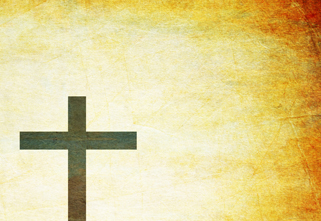With Easter only days away, a new miniseries featuring dramatizations of stories from the Bible on the air, and the news magazines gearing up for another round of “Who was Jesus” type features, Christians everywhere are going to be facing a couple of big questions:
Did Jesus really have to die?
Did Jesus need to rise from the dead for Christianity to be true?
The answers might seem obvious to some of us, and intimidating for others. But provide an answer we must in a season that provides us with so many opportunities to share our faith.
Whether we realize it or not, the death and resurrection of Jesus is among the most hotly contested issues facing our pluralistic culture. Did Jesus “have” to die — what does it mean? Why does it matter? Why is it so important that He not only died, but rose again?
These are important questions — in fact, they’re the most important questions one could ever ask. To answer them, it’s helpful to understand the context and purpose of Jesus’ death.
In the beginning.
The story of the death of Jesus begins with another death — that of our first parents in the garden. God had warned Adam and Eve not to eat of the fruit of the tree of the knowledge of good and evil, “for in the day that you eat of it you shall surely die” (Gen. 2:17b).
Naturally, they obeyed — they had no reason not to. Until the serpent entered the garden and tempted them to disobey, promising them, “You will not surely die. For God knows that when you eat of it your eyes will be opened, and you will be like God, knowing good and evil” (Gen. 3:4-5).
Many of us know how the rest of the story goes. They ate the fruit. They disobeyed God and they — and all their descendants after them — were plunged into sin. Human relationships were fractured, work became fruitless toil, and God’s warning that death would come through their disobedience came true, first spiritually and then physically (Gen. 3:6-19).
But even in the midst of this, God gave our first parents reason to hope — some day, a son of Eve would do battle with the serpent and destroy him (Gen. 3:15).
The sacrificial system and shadows of things to come.
In the meantime, though, humanity still had a big problem — the penalty for sin was death, so how could men and women be in relationship with their Creator? Throughout the book of Genesis we see worshippers offering sacrifices of animals for various reasons — including at least one offered in the place of a human. God provided a substitute (see Gen. 22:1-18).
Fast forward a few hundred years to the people of Israel, Abraham’s descendants. In bondage to Egypt for generations, God sends Moses to free the people so they might worship the Lord. Pharaoh refused to release the people, and God responded by sending a series of plagues that culminated in the death of the firstborn males in Egypt. But God provided an exception:
The plague would pass over any household where the doorposts were painted with the blood of a spotless lamb (see Ex. 12:1-32).
The Passover became one of the pinnacle moments of Israelite history — something God commanded them to remember every year without fail (Ex. 12:43-51). As the Israelites sojourned in the desert for the next forty years and God gave them the Law — with more than 600 commandments governing every aspect of life — we see an elaborate sacrificial system instituted. Sacrifices are required for offerings of peace and thanksgiving and for the sins of the people (see Leviticus 4).
What we learn in the New Testament is that these sacrifices were only a shadow of something greater to come. They had to be performed over and over again, without fail, by priests who had their own sin requiring forgiveness. It was an imperfect system pointing forward to a perfect sacrifice to come, one performed by Jesus in His substitutionary death on the cross (Heb. 10:1-18).
And every priest stands daily at his service, repeatedly offering the same sacrifices which can never take away sins. But when Christ had offered for all time a single sacrifice for sins, he sat down at the right hand of God, waiting from that time until his enemies should be made a footstool for his feet. For by a single offering he has perfected for all time those who are being sanctified (Heb. 10:11-14).
Every sacrifice of the Old Testament, Christ completed in His death on the cross. The imperfect was covered over by the perfect. The shadow eclipsed by the blindingly clear. This is what Christ did on the cross — it’s what we celebrate at Easter.
The question is:
Did it have to be this way?












